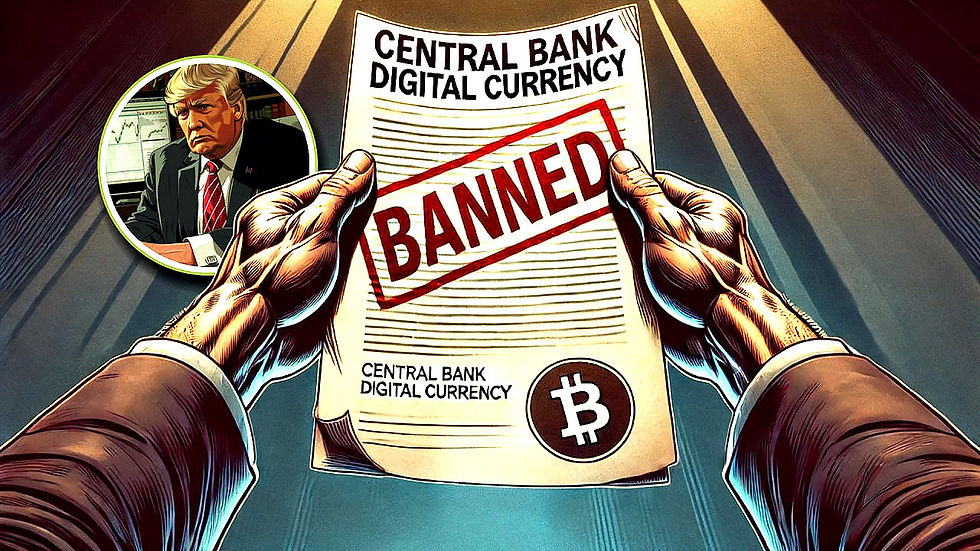Crypto Gift Card Scams Explained and How to Avoid Them
- CoinLink

- Oct 14, 2024
- 4 min read

Gift card scams are deceptive schemes where criminals trick individuals into purchasing gift cards and handing over the card details, such as the code or PIN. Once they have this information, scammers can either make unauthorised purchases or sell the cards on the black market. These scams often involve various tactics, including fake prize giveaways, romance scams, and technical support fraud.
A common strategy involves scammers creating fake social media or dating profiles to establish trust with victims. Once a relationship is built, they ask for money or personal details, often under the guise of an emergency. In another variation, scammers pose as tech support agents, claiming the victim’s device is infected with malware. They then instruct the victim to buy a gift card to cover the cost of repairs.
In the cryptocurrency space, similar scams exist where victims are tricked into sending digital assets like Bitcoin (BTC) or Ether (ETH) under false pretences. These scams typically promise high returns, prizes, or investment opportunities, only for the scammer to disappear once the victim sends the funds. To carry out these schemes, bad actors may use phishing websites or fake social media profiles.
How Gift Card Scams Work
In some cases, scammers use gift cards to convert stolen funds into anonymous, untraceable currency. They may pose as traders or investors, particularly on platforms like Telegram, offering large returns on investments through gift cards. They often promise to sell cryptocurrencies at a discount or claim the investment will double in value, luring unsuspecting victims into the trap.
Victims are instructed to buy gift cards and provide the code, which the scammer claims will be used to purchase cryptocurrency. Once they have the codes, the scammer vanishes, leaving the victim with worthless gift cards.
Typical Gift Card Scam Steps:
Scammers create a fake social media account or website promoting a crypto giveaway or investment opportunity.
They promise a substantial return on a small contribution, allegedly required to verify identity or fund the investment.
The victim is asked to make the payment using a gift card, such as an Amazon or iTunes card.
After receiving the gift card details, the scammer disappears, and the promised cryptocurrency never materialises.
The gift card allows the scammer to convert the stolen funds into an anonymous and untraceable form, making recovery of the money nearly impossible.
Signs of a Gift Card Scam
Gift card scams, particularly those involving cryptocurrency, can be challenging to detect. However, certain warning signs can help you stay safe. One key red flag is a promise of unusually high returns with minimal risk, often accompanied by a demand for payment in gift cards. Legitimate businesses or investors rarely, if ever, request gift cards as payment.
Another telltale sign is the pressure to act quickly, leaving little time for verification. Unsolicited communication, vague information about the sender, and requests for personal details are also common indicators of fraud.
Some scammers make the process deliberately complex, such as requesting gift cards in different denominations or asking victims to transfer cryptocurrency to obscure wallets. Transactions that seem unnecessarily complicated should raise suspicion.
In some cases, poor grammar and spelling in communications may hint that the sender is not a professional. Scammers also tend to withhold crucial details about themselves or the investment, making it difficult for victims to verify the legitimacy of the offer.
How to Avoid Gift Card Scams
To protect yourself from gift card scams, it is essential to be vigilant and take time to verify the legitimacy of any investment opportunity. Conduct thorough research on the person or organisation offering the deal.
Several precautionary measures can help:
Be cautious of unsolicited investment offers received via email or social media, especially those that guarantee large returns with little to no risk.
Avoid anyone asking for payment in gift cards, as reputable businesses do not typically accept them.
Research the individual or company offering the investment opportunity. Verify their identity and credentials with relevant regulatory bodies.
Never share sensitive information like your bank account details or national insurance number unless you are certain the opportunity is legitimate.
Ensure you fully understand the risks and rewards associated with any transaction before committing funds.
What to Do If You've Been Scammed
If you find yourself the victim of a gift card scam, it’s crucial to act swiftly to minimise the damage and report the incident.
Here’s what you can do:
Stop all communication: Immediately cease any contact with the scammer, whether by phone, email, or social media.
Report the incident: Notify the relevant authorities, such as the Financial Conduct Authority (FCA), the local police, or the cryptocurrency exchange involved. This step is essential in preventing the scam from spreading further.
Alert credit agencies: If you’ve shared personal information, consider setting up a fraud alert with credit reporting agencies to prevent identity theft.
Attempt to recover funds: Contact the service provider, such as the cryptocurrency exchange or wallet, and explain the situation. While recovery is difficult, it may be possible to freeze the funds or trace the transaction.
Educate yourself on cryptocurrencies: Stay informed about potential risks in the cryptocurrency world. Verify the legitimacy of any investment before proceeding.
Gift card scams are increasingly sophisticated, especially with the rise of cryptocurrency. By recognising the warning signs, conducting thorough research, and staying cautious of unsolicited offers, you can significantly reduce your risk of falling victim to these schemes. Always be sceptical of promises that seem too good to be true, and never hand over gift card details or cryptocurrency without fully verifying the legitimacy of the request.



Comentarios